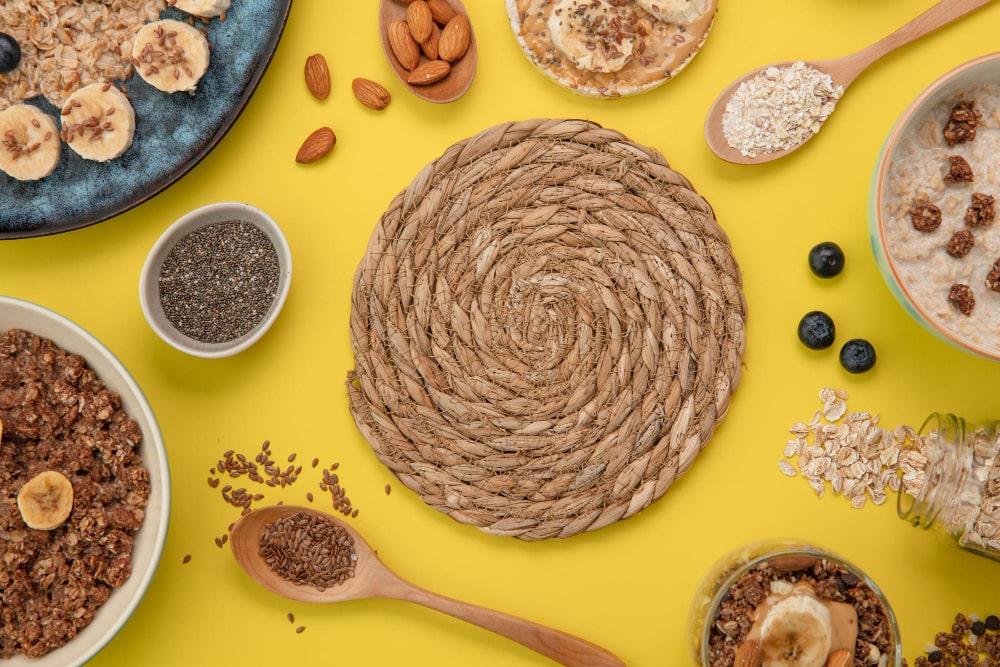
A Guide to Natural Fibers: Understanding the Benefits and Properties of Each
There is a growing demand for sustainable products in today’s world. As we become more conscious of our environmental impact, natural fibers are becoming more popular in the textile industry.
Let’s begin by discussing what natural fibers are..
What is Natural Fiber?
Natural fibers are materials from plants and animals that can be spun into yarn and fabric. Examples include wool, linen, cotton, silk, jute, rayon, hemp, and bamboo. They are a renewable resource and are an eco-friendly alternative to synthetic fibers.
Examples of Natural Fibers
Cotton, Wool, Jute, Hemp, Flax, Bamboo, Coir, Abaca, Ramie, Soy. These fibers are all sourced from plants, animals, and minerals. Cotton is the most widely used natural fiber, followed by wool, jute, and hemp.
Each of these fibers has its own unique characteristics, such as absorbency, strength, and durability. Natural fibers are also eco-friendly and biodegradable.
For a better understanding of natural fibers and their properties, we will discuss the different types and their properties in this article.
Types of Natural Fibers
Cotton
Cotton is one of the most common and popular natural fibers. Due to its softness, breathability, and hypoallergenic properties, it can be used in a variety of applications, such as clothing, bedding, and towels.
Besides being easy to dye, cotton is also a popular material for vibrant colors. Furthermore, cotton is an ideal fabric for people who are sensitive to other synthetic materials, as it does not contain any harsh chemicals or irritants.
Linen
The flax plant is the source of linen, a natural fiber. The fabric is known for its durability, strength, and ability to absorb moisture, making it ideal for summer clothing and bedding. A linen textile is also characterized by a unique texture that adds to its rustic charm.
Wool
Natural fibers derived from sheep’s fleece are known as wool. It is an ideal fiber for winter clothing and blankets because it provides warmth and insulation. The natural flame resistance and moisture wicking of wool make it a popular outdoor clothing choice.
Silk
An organic fiber derived from silkworm cocoons, silk is luxurious and durable. This fabric is popular for high-end clothing, scarves, and home decor because of its softness, luster, and draping quality. As well as being hypoallergenic and moisture-wicking, silk is also ideal for hot climates.
Bamboo
Bamboo is a natural fiber that is derived from the bamboo plant. It is soft, breathable, and moisture-wicking, making it a popular choice for activewear, underwear, and socks. Bamboo is also eco-friendly and sustainable, as it grows quickly and does not require pesticides or fertilizers.
Jute
Natural fibers such as jute are derived from plants. Ropes, twine, and burlap bags commonly use this fiber because it is a strong and durable material. Due to its low water and pesticide requirements, jute is also an eco-friendly and sustainable material.
Ramie
Natural fibers such as ramie are derived from the stalks of plants named ramie. It is a strong and durable fiber that is similar in texture to linen. As well as being moisture-wicking and hypoallergenic, Ramie is an excellent fabric for summer clothing.
Hemp
The hemp plant produces a natural fiber called hemp. Fibers made from this material are strong and durable, making them ideal for clothing, bedding, and towels. In addition to being environmentally friendly and sustainable, hemp uses fewer pesticides and water than other crops.
Coir
Natural fibers like coir are derived from the outer husk of coconuts. The fiber is commonly used for doormats, rugs, and upholstery because of its strength and durability. Since it is a by-product of the coconut industry, coir is also environmentally friendly and sustainable.
In Conclusion
In comparison to synthetic fibers, natural fibers offer a wide range of unique properties and benefits. In the textile industry, Vatsal Exports LLP is committed to promoting natural fibers and using those fibers in our production. Our products are high-quality and sustainable because we understand the properties and benefits of each natural fiber.
Visit our website to learn more about our range of natural fiber textiles and to support industry sustainability practices.
Our commitment to sustainability extends beyond production, as we actively strive to reduce our environmental impact and drive industry best practices.
